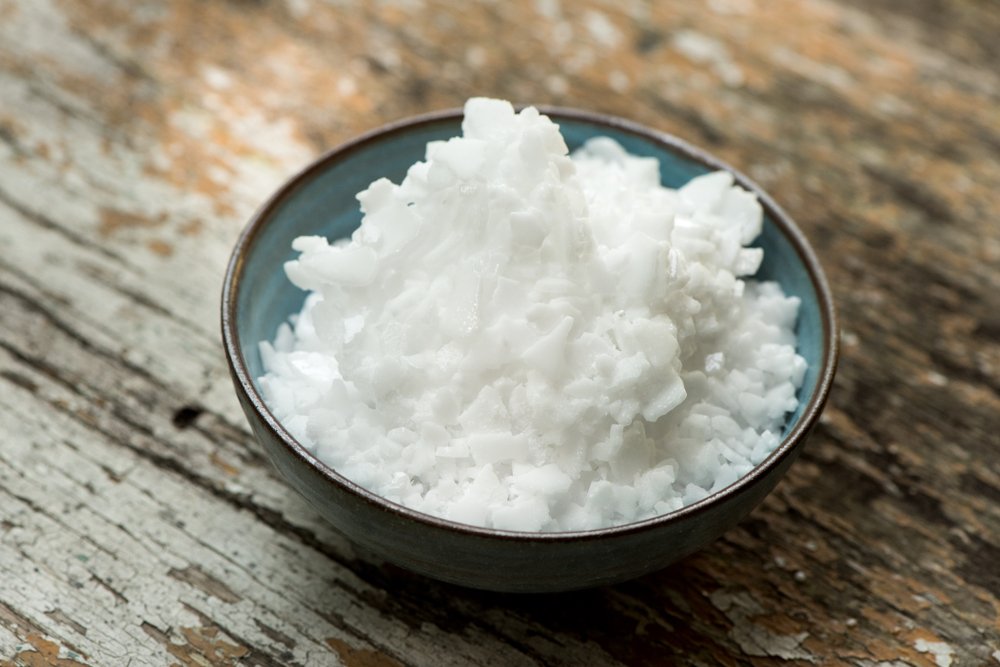The Role of Potassium Hydroxide (KOH) Alkali in Various Industries: A Comprehensive Overview
The Role of Potassium Hydroxide (KOH) Alkali in Various Industries: A Comprehensive Overview
Welcome to our comprehensive overview of the unsung hero in various industries – Potassium Hydroxide Alkali, better known as KOH! From powering batteries to producing biodiesel, this chemical compound plays a vital role behind the scenes, impacting countless sectors around the globe. Join us as we dive into its versatile applications and shed light on how this powerhouse alkali is transforming multiple industries. Whether you’re a curious chemist or simply intrigued by industrial marvels, this blog post will unveil the fascinating world of Potassium Hydroxide Alkali and its impressive contributions. Get ready for an eye-opening exploration that will leave you amazed at what lies beyond its unassuming appearance!
Introduction to Potassium Hydroxide (KOH) Alkali and its uses
Introduction to Potassium Hydroxide (KOH) Alkali and its uses
Potassium hydroxide (KOH) is a strong alkali compound that is commonly used in various industries. It is also known as caustic potash, lye, or potassium hydrate. This chemical compound is highly soluble in water, and it has many useful properties that make it an essential ingredient in numerous applications.
Properties of Potassium Hydroxide
Potassium hydroxide is a white solid with a granular or flakey appearance. It has a strong alkaline taste and can cause severe burns when it comes into contact with the skin. This chemical compound has a pH level of around 14, making it one of the strongest bases known.
One of the unique properties of potassium hydroxide is its high solubility in water. It readily dissolves in water to form a clear solution, which makes it easier to use in various applications. The solution produced by mixing potassium hydroxide with water also generates heat due to an exothermic reaction between the two chemicals.
Uses of Potassium Hydroxide
1. Soapmaking: One of the most common uses of potassium hydroxide is in soapmaking. When mixed with fats or oils, KOH reacts to form liquid soaps instead of solid ones like sodium hydroxide (NaOH). Liquid soaps are milder on the skin and have better foaming properties than solid bars.
2. Fertilizers: Potassium hydroxide is also used in the production of fertilizers, particularly those that require high levels of potassium. This compound is an essential nutrient for plant growth and is often added to fertilizers to improve crop yields.
3. Cleaning products: Due to its strong alkaline properties, potassium hydroxide is commonly used in cleaning products such as drain cleaners, oven cleaners, and degreasers. It helps break down and dissolve stubborn grease and grime.
4. Petroleum refining: In the petroleum industry, potassium hydroxide is used to remove impurities from crude oil during the refining process. It helps neutralize acidic compounds and removes sulfur impurities, making the final product cleaner and more valuable.
5. Pharmaceuticals: Potassium hydroxide is a key ingredient in many pharmaceuticals, including antacids, laxatives, and other medications that require a neutralizing agent.
6. Food processing: This chemical compound is widely used in food processing industries as a pH regulator or food additive. It can help adjust the acidity levels in foods such as canned vegetables and fruits.
7. Biodiesel production: Potassium hydroxide is an important catalyst in the production of biodiesel from vegetable oils or animal fats.
Importance of KOH in various industries such as agriculture, manufacturing, and cleaning
KOH, also known as potassium hydroxide or caustic potash, is a versatile and essential chemical compound that plays a crucial role in various industries. Its properties as a strong alkali make it an important ingredient in agriculture, manufacturing, and cleaning processes. In this section, we will delve deeper into the importance of KOH in these industries.
1) Agriculture:
In the agricultural industry, KOH is primarily used as a fertilizer to enhance soil quality and stimulate plant growth. It contains high levels of potassium, which is one of the three essential macronutrients required by plants for their optimum growth and development. Potassium helps in improving the absorption of water and nutrients by plants, making them more resistant to drought and diseases. Additionally, KOH can also be used to balance the pH levels of soil and neutralize acidic soils that are not suitable for plant growth.
2) Manufacturing:
KOH has numerous applications in the manufacturing industry due to its powerful alkaline properties. One of its main uses is in soap-making where it is combined with fats or oils to produce liquid soaps. It acts as a saponifying agent that converts fatty acids into soap molecules through a process called saponification. Apart from soap production, KOH is also used in the manufacture of biodiesel fuels, pharmaceuticals, dyes, textiles, paper products, and many other industrial chemicals.
The production process of KOH and its chemical properties
The production of potassium hydroxide (KOH) involves several steps and techniques to obtain the desired quality and purity. It is mainly produced by the electrolysis of potassium chloride (KCl), also known as the chloralkali process, in which a direct current is passed through an aqueous solution of KCl.
The first step in this process is the purification of potassium chloride. The impurities present in KCl, such as magnesium and calcium ions, can cause problems during electrolysis. Therefore, it is essential to remove these impurities before proceeding with the production of KOH. This purification can be achieved through various methods such as crystallization or ion exchange.
Once purified, the KCl solution is then fed into an electrolytic cell containing electrodes made of graphite or steel. These electrodes are separated by a diaphragm or membrane that allows only ions to pass through. When electricity passes through the solution, it causes the decomposition of water molecules into hydrogen gas at the cathode and oxygen gas at the anode.
At the same time, chlorine gas is also produced at the anode due to oxidation of chloride ions from KCl. This chlorine gas can be collected for further use in other industries such as PVC production or water treatment.
Meanwhile, at the cathode, potassium ions from KCl are reduced and form metallic potassium that reacts with hydroxide ions (OH-) present in water to produce KOH.
Different forms of KOH available on the market
KOH, or potassium hydroxide, is a highly versatile and widely used alkali in various industries. It is an essential compound for many manufacturing processes and applications, making it readily available on the market in different forms. In this section, we will dive deeper into the various forms of KOH that are available and commonly used by industries.
1. Solid Flakes/Pellets:
The most common form of KOH found on the market is solid flakes or pellets. This form is produced by reacting potassium chloride with sodium hydroxide, resulting in a white crystalline substance that is then dried to produce either flakes or pellets. The advantage of this form is that it has a high purity level (typically 85-95%) and can be easily stored and transported without losing its potency.
2. Liquid Solution:
Another form of KOH available on the market is in liquid solution form. This solution is created by dissolving solid flakes/pellets of KOH in water, resulting in a clear colorless liquid with varying concentrations (usually ranging from 25% to 50%). This form offers ease of use as it eliminates the need for additional dissolution steps before use.
3. Powder:
Potassium hydroxide powder is another popular form available on the market, especially for laboratory and research settings. This finely ground powder can be easily mixed with other substances to create specific formulations required for experiments or industrial processes.
Benefits of using KOH compared to other alkalis
KOH, or potassium hydroxide, is a versatile alkali that has gained widespread use in various industries. It is commonly used in the production of soaps, detergents, fertilizers, and many other products. One of the key reasons for its popularity is its unique set of benefits compared to other alkalis.
Here are some of the main benefits of using KOH over other alkalis:
1. Stronger Base: KOH is known as a strong base due to its high pH level and ability to completely dissociate in water. This makes it more effective at neutralizing acids and reacting with other substances compared to weaker bases like sodium hydroxide (NaOH). In industries where a powerful base is needed for specific processes, such as in the production of biodiesel or cleaning agents, KOH is often preferred.
2. Higher Solubility: Potassium hydroxide has greater solubility than many other alkaline substances. This means that it can dissolve easily in water and form a clear solution without leaving any residue behind. As a result, it can be used in applications where the presence of solids would be undesirable or harmful.
3. Improved Reactivity: Due to its ionic nature and high reactivity, KOH can undergo a wide range of chemical reactions with different compounds. It can effectively react with acids to form salts or undergo saponification reactions with fats and oils to produce soap – making it an essential ingredient in soap-making processes.
Common applications of KOH in different industries with examples
Potassium Hydroxide (KOH) is a strong alkali compound that has numerous applications in various industries. Its unique properties make it an essential ingredient in the production of many everyday products, ranging from soaps and detergents to food processing and pharmaceuticals. In this section, we will take a closer look at some of the common applications of KOH in different industries, along with specific examples.
1. Soap and Detergent Industry: One of the most significant uses of KOH is in the soap and detergent industry. It is used as a key ingredient in producing liquid soaps, laundry detergents, and other cleaning agents due to its excellent solubility in water. KOH also has strong emulsifying properties, making it useful for removing grease and oil stains from clothes and surfaces. Additionally, KOH helps to balance the pH levels of these cleaning products, making them more effective.
Example: Liquid dishwashing liquids often contain higher concentrations of KOH due to its ability to cut through tough grease on dishes.
2. Agriculture Industry: Potassium hydroxide plays an important role in the agriculture industry as well. It is commonly used as a fertilizer for crops that require high levels of potassium for optimal growth, such as potatoes, tomatoes, and citrus fruits. As an alkali compound, it helps neutralize acidic soils by raising their pH levels while providing plants with essential nutrients.
How Wigmore Trading partners with reputable producers to supply buyers in Nigeria and worldwide
Wigmore Trading is committed to providing high-quality Potassium Hydroxide (KOH) alkali to buyers in Nigeria and worldwide. As a leading supplier of chemicals, we understand the importance of partnering with reputable producers to ensure our customers receive the best products on the market.
At Wigmore Trading, we have established strong relationships with top producers of Potassium Hydroxide (KOH) alkali from around the world. These partnerships allow us to offer a wide range of high-grade products that meet industry standards and fulfill specific customer requirements.
One of our key strategies in selecting partners is their commitment to quality control and safety measures. Our partner producers are carefully selected based on their strict adherence to international quality standards such as ISO 9001:2015, ensuring that all products supplied by them are consistently of the highest quality.
Our partnerships also extend beyond just sourcing products; we work closely with our producers to stay updated on market trends and technological advancements in the industry. This allows us to provide our customers with the latest and most innovative solutions for their specific needs.
In addition, Wigmore Trading takes great pride in ethical business practices, which is why we only partner with companies who share our values. Our partners are committed to sustainable production methods, environmentally friendly processes, and fair labor practices.
By collaborating with reputable producers, Wigmore Trading can guarantee reliable supply chains for our customers.








Comments are closed.